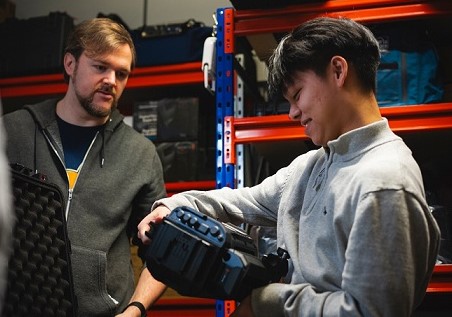Cost pressures are the biggest barrier to innovation, new research from the Greater Birmingham Chambers of Commerce and University of Birmingham City-REDI reveals.
The research, released as part of the Chambers’ Invest to Grow campaign, reveals that 65 per cent of local businesses identified cost pressures/high input cost as a barrier to innovation in their business.
The survey also highlights that too much competition in the market (64 per cent), lack of skilled employees within their enterprise (59 per cent) and lack of internal finance for innovation (49 per cent) as important barriers.
The results are based on a survey of over 200 local businesses taken earlier this year.
As a result, the Chambers are calling on the Government to reduce input costs for businesses arising from taxation.
Henrietta Brealey (pictured), director of policy and strategic relationships at GBCC, said: “We have seen a significant rise in costs for businesses coming from taxation and associated administration in recent years.
“When we surveyed businesses across the West Midlands region earlier this year we found that 76 per cent of firms had experienced an increase in the overall burden of tax admin and compliance compared to five years ago.
“And with the recent introduction of the apprenticeship levy, pension auto-enrolment and rising business rates for a significant number of firms, it’s no wonder why.
“The Government have made clear their intention to encourage firms to innovate and boost R&D spend through The Industrial Strategy.
“However, Ministers and officials need to bear in mind that businesses only have finite resources.
“If the Government could successfully overhaul the UK’s tax system to reduce its reliance on input taxes and streamline admin it would free up significant business resources for potential investment in innovation and R&D.
“We are also calling on the Government to clarify their long-term vision for innovation funding post-Brexit.”
The Invest to Grow campaign aims to inspire and inform businesses around investment in research and development (R&D), innovation, technology and machinery and how it can help boost productivity.
Part one of the campaign is sponsored by the University of Birmingham.
Professor Simon Collinson, deputy pro-vice-chancellor for Regional Economic Engagement and director of the City-Region Economic Development Institute (City-REDI), said: “Universities are key players in the city-region’s innovation system. Alongside our counterparts the University of Birmingham is working with local firms, large and small, to develop new technologies in life sciences, renewable energy systems, rail transport and advanced materials to drive competitiveness in global markets.
“But we are also helping policy makers develop a local industrial strategy focused on the unique strengths of our city-region. City-REDI’s work with the Chamber shows that the region is under-investing in skills, R&D and new technology. Firms are the driving force for regional growth and managers need the confidence to invest to compete more effectively, despite the current uncertainties.”
The Chambers are also encouraging local business leaders to embrace innovation and R&D in their organisations and tap in to the support available.
Henrietta Brealey said: “Investing in innovation and R&D is as much, if not more, about business culture and leadership as it is about financial investment.
“We are encouraging business leaders to create an environment that recognises, rewards and enables innovation.
“Every investment comes with a risk of failure. Luckily, there are a lot of support organisations, tax incentives, grants and potential partners out there that can help businesses reduce the risks associated with investing in R&D and innovation.
“Make sure your organisation is making the most of them. The resources available through our Invest to Grow campaign can help businesses get started.”
Andy Newnham, strategic business engagement partner at the University of Birmingham said: “Universities are hotbeds of innovation, full of the latest thought leadership, talent, and pioneering academics.
“By collaborating with universities, businesses can access the latest thinking on industry trends and avoid the large time and capital costs associated with R&D and innovation.
“At the University of Birmingham, we’re used to collaborating with all kinds of businesses, from regional SMEs, through to multinationals. By supporting vital campaigns like Invest to Grow we want to highlight to organisations the positive role we can play in their growth.”
















